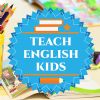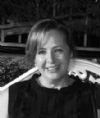|
ESL Forum:
Techniques and methods
in Language Teaching
Games, activities
and teaching ideas
Grammar and
Linguistics
Teaching material
Concerning
worksheets
Concerning
powerpoints
Concerning online
exercises
Make suggestions,
report errors
Ask for help
Message board
|
ESL forum >
Message board > How do you think teachers develop such an extensive body of professionally relevant knowledge?
How do you think teachers develop such an extensive body of professionally relevant knowledge?
|

htaraf

|
How do you think teachers develop such an extensive body of professionally relevant knowledge?
|
|
I would like to find out what you think about this question:
How do
you think teachers develop such an extensive body of professionally relevant
knowledge?
|
23 Dec 2012
|
|
|
|

elderberrywine

|
what knowledge are you talking about?
normally teachers study at university and do some sort of teachers training
then experience teaches them the rest...
but I don ’┐Įt suppose that ’┐Įs what you mean?
|
23 Dec 2012
|
|
|

cunliffe

|
|
Through: good subject knowledge/experience/training/continued professional development/sensitivity in responding to pupil need/research/contact with other agencies who deal with children/contact and communication with other teachers. Some teachers are more adept at this than others, and so we might include a good attitude, a desire to continue learning, ambition to be a better teacher. Just a few thoughts.
|
23 Dec 2012
|
|
|

htaraf

|
|
Thank you for your interest in my question. As far as I see, you haven ’┐Įt included education at university as a source of knowledge. I think we are not prepared well for being a teacher in Turkish universities. How is the situation in your own context? |
23 Dec 2012
|
|
|

libertybelle

|
We choose majors -that means subjects that we are good at or interested in, and at the teacher ’┐Įs college we learn how to give that knowledge to the students so they understand it.
I gained tools for teaching, and some information about my subjects.
A good teacher can not learn everything at the college because information changes all the time - so a good teacher keeps him or herself informed by reading books, newspapers, taking courses, listening, working in groups etc.
Libertybelle
|
23 Dec 2012
|
|
|

htaraf

|
|
I mean teachers ’┐Į knowledge including all content knowledge, pedagogical and methodological knowledge. |
23 Dec 2012
|
|
|

SaraMariam

|
My personal view and experience is that all the knowledge eventually comes from teaching / experience itself. I saw so many teachers that studied and were really .. ehm, "not that great"? And I saw teachers that had no university education at all and they are some of the best I have ever seen. Through their interest in the subject, they tend to research themselves a lot from internet, books, videos, workshops, trying many new things out, etc. I ’┐Įm not saying teachers that come from university are no great teachers, but what I actually mean is you have to have some talent and real interest in this profession and do a lot of work and research on your own. I started to be an English teacher without having a uni degree. I decided 10 years later i should maybe start something in order to have some sort of paper showing that I know what I do. So i took part in TEFL training and must say, it was a bit boring because with the years of experience you get, they can ’┐Įt really teach you anything new. In the years prior to that training, I used to do a lot of research myself, about methodology, psychology, different learning types, classroom management and whatever I found relevant for my classes and students i ’┐Įm teaching. If I had a student that was challenged, I would read about his disability and try to do my lessons according to this .. every student is different and the more one shows interest in every single one (as far as possible), trying to adapt as much as possible, reading, learning, testing .. all comes together after all. And with the years you get better and better in what you do. |
23 Dec 2012
|
|
|

Yolandaprieto

|
|
In my opinion knowledge is fundamental but so are vocation and experience.
Happy Christmas to all of you
Yolanda |
23 Dec 2012
|
|
|

MoodyMoody

|
|
There are actually many areas of knowledge and skills that are professionally relevant as well, some of which may not at first thought seem useful. I teach adults, and I have found that my health and medical knowledge has proven to be quite useful in my teaching. I find myself a bit hampered because I don ’┐Įt know very much about job hunting.
And remember that not only are students individuals, but so are teachers. What works well for one teacher may be wretched in the hands of a different teacher. One of my colleagues teaches parts of the body through song. I wouldn ’┐Įt have any students left if I tried that!
In general, I agree with the other respondents: there is no substitute for experience. Teachers need to continue to grow and experiment with new ways of doing things, but knowing what works and having a stock of materials is really helpful. |
23 Dec 2012
|
|
|

joy2bill

|
|
Experience, experience and making mistakes! |
23 Dec 2012
|
|
|

jannabanna

|
|
I totally agree with ’┐ĮSaraMariam’┐Į! On my teacher training course some
of those who had just left university didn ’┐Įt have a clue about "getting
things over", they seemed to be too academic! I feel teaching is something you have or not ’┐Į
I may be wrong! Of course as ’┐Įyou2bill’┐Į
said, experience and making mistakes are two very important stages for teachers.
For native English teachers, like myself, it’┐Įs quite different
than for other nationalities teaching English, because we don’┐Įt learn English
grammar at school (well we didn’┐Įt in my days) we just spoke it! The only thing I remember learning in our
English classes was: ’┐Įan adjective is a describing word, a noun is a naming
word, etc’┐Į and having to do lots of dictations!
I’┐Įll never forget one of my first teaching experiences way back in
1981. I was doing a short intensive
English course with students of an intermediate level and decided to pass
around a piece of paper for them to write down what they wanted to cover on
their course. When I saw the word ’┐Įsubjunctive’┐Į
on the list, I thought: ’┐ĮOMG, what’┐Įs that?!!’┐Į
And that started my apprenticeship of my own language!! Of course I used it in my speech, but didn’┐Įt
know what it was called.
I’┐Įd love to hear what other native English teachers think of this!
Janet
|
24 Dec 2012
|
|
1
2
Next >
|
















